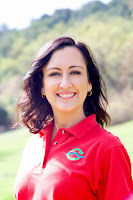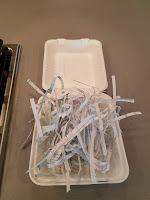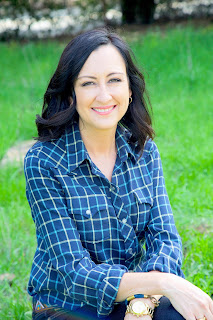 |
"As a septic professional, I'm
often asked what products are safe for septic use" |
Get answers to common septic system questions from Jacqueline Sommers, a certified wastewater professional and owner of Better Than Septic
Wastewater contains a variety of constituents, including human and food waste, pharmaceuticals, pathogens, nutrients and chemicals
Today we're going to discuss kitchen products that are intended to be rinsed down the drain during normal use
KITCHEN PRODUCTS
Q (to Jacque): How much water is used in the kitchen?
A: With sinks, dishwashers and garbage disposals, approximately 20% of your home's water usage is attributed to the KITCHEN.
 Q: What kind of products go down the drain in a kitchen?
Q: What kind of products go down the drain in a kitchen?A: So many! Of course there are hand soaps, dish detergents and rinse aids, plus all-purpose cleaners, disinfectants, oven cleaners, degreasers and even DIY cleaners like baking soda and vinegar.
A: Yes. The volume of water from normal dishwasher use should not be a problem for a septic system in good working order. Most modern dishwashers use just 6-10 gallons of water each load.
Q: Can dishwashing products harm the septic system or dispersal field?
A: Under normal use, the amount of detergents, soaps and rinse aids entering the system is low and diluted enough that these products should NOT harm the beneficial septic bacteria.
Q: Do you recommend liquid or powdered dishwashing detergent?
A: Either. Today's dishwashing products - in tablet, liquid and powder form -are formulated and sized for use with modern appliances. Look for biodegradeable, phosphate free, bleach free, fragrance and dye free formulas.
 Q: You mentioned oven cleaners.
Q: You mentioned oven cleaners.A: Oven cleaners contain very harsh chemicals that can have a very detrimental effect on septic systems and these products SHOULD NOT be rinsed down the drain. Instead, sprinkle salt on drips then scrub using baking soda and scouring pads. Dispose with paper towels in the garbage.
Q: Any other kitchen tips?
A: Avoid putting F.O.G. (Fats, Oils & Grease) down the kitchen drain! It's just terrible for septic systems AND pipes. If your pipes become clogged absolutely DO NOT use a degreaser! Degreasers disperse layers of grease - both in the pipes and IN THE SEPTIC TANK. This can cause very serious damage to your dispersal field, including clogging.
Other Q & A Discussions:
Personal Care Products
Laundry Products
Cleaning Products
Better Than Septic
(844) 224-2782 (AQUA)
© 2017 Better Than Septic. All rights reserved.












